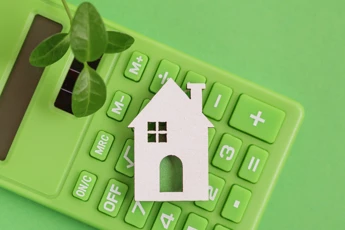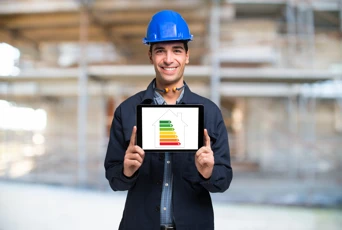With lots of government initiatives and deadlines for certain green living and climate goals, the mortgage industry has been responding over the last few years with green mortgage products. These products are aimed at properties with A and B rated Energy Performance Certificates (EPCs) and those with plans to improve the rating of their properties to A and B ratings.
Now available at a wide variety of major lenders, including specialist lenders, green mortgages have been growing in popularity over the last three years. While the features and specifications of each particular product vary from lender to lender, they all offer similar benefits. Let’s explore the benefits they have to offer:
Potentially lower interest rates
While this may be a more difficult benefit to receive, given the current Bank of England base rate of 5.25% (current as of 18/10/23), this is a benefit of green mortgages that is often advertised by major lenders who offer them.
The reason for this is that lenders want to incentivise customers to purchase more energy efficient properties to help contribute to Britain’s (and the EU’s) Net Zero goal of 2050 - a hot topic right now, with PM Rishi Sunak recently giving a speech regarding the government’s approach to the 2050 goal.
However, it is important to remember that while a lot of lenders may offer lower interest rates on green mortgages to incentivise customers, a lot of green mortgage products do not come with this incentive. Some of the products may end up costing more than standard mortgage products. Therefore, it is imperative to do plenty of research and talk to a mortgage adviser to ensure you’re getting the right deal.

Reducing your carbon footprint
According to data revealed by the Office of National Statistics in August 2023, just over two thirds of adults in the UK said they were worried about the ecological fate of the country and the impact of climate change.
With this in mind, it makes sense that more and more people are choosing to take out green mortgage products for their properties. With green mortgage properties, their EPC ratings are usually rated B or higher (while some lenders offer green mortgage products for properties rated C or higher), which means they produce less carbon emissions than lower rated properties.
Increased property value
By making use of additional borrowing offered by a variety of green mortgage lenders, you can make a series of refurbishments and improvements to your property, which in turn, helps raise its value. With the UK pushing eco-friendly solutions to carbon emissions from properties, it is likely that these properties that receive green retrofitting will hold their value better than properties with lower EPC ratings. It is probable that greener houses are and will continue to be viewed as a more desirable investment as the fight against climate change intensifies.
Cheaper energy bills
As properties that qualify for green mortgages have EPC ratings of B or above (sometimes C or above), they are a lot more energy efficient than lower rated properties. Because of this efficiency, it is likely that a property that qualifies for a green mortgage costs less in terms of energy bills.
A few things to remember
If you are an environmentally conscious person and someone who wants to potentially save money on your mortgage repayments and energy bills, a green mortgage might be right up your street. However, there are some things that you should remember before jumping in.
Refurbished vs new build
When it comes to refurbished/retrofitted homes vs new builds, refurbished homes tend to be more carbon efficient than new builds. This is due to the majority of a property’s carbon footprint being produced during the construction process.
Current high interest rates
As mentioned earlier, the Bank of England base rate is currently sitting at 5.25%. Because of this, green mortgage rates are currently sitting above standard mortgage products.
Are green mortgages suitable for you?
As the focus on eco-friendly living continues to grow, these mortgages represent a win-win situation for both homeowners and the environment, making them a worthy consideration for anyone looking to purchase or upgrade their home in the UK.
Important information
Your home may be repossessed if you do not keep up repayments on your mortgage.
There may be a fee for mortgage advice. The actual amount you pay will depend on your circumstances. The fee is up to 1% but a typical fee is 0.3% of the amount borrowed.




